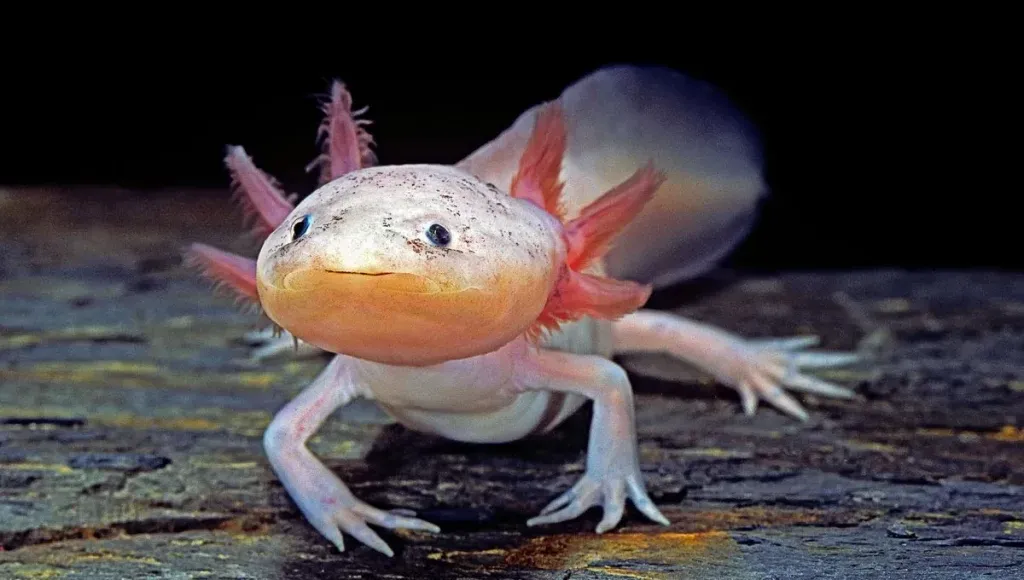Studying and exploring this aquatic wonder known as Axolotls, there are questions that pop up like: Can Axolotls bite? Here we will explore more about this creature and also the above question.

Understanding Axolotls
The Axolotls are also known scientifically as Ambystoma mexicanum and they are a salamanders which are native to Mexico.
The axolotls keep their aquatic juvenile characteristics throughout their lifetime unlike their amphibian relatives.
This act is known as neoteny. Their features such as their feathery appearance and external gills makes them stand out as real aquatic beings.
Mouth Structure
One has to examine their mouth structure to determine if axolotls can bite or not. The axolotls’ mouth is relatively small and narrow which is designed mainly for suction feeding.
The Axolotls teeth are peg-like in structure which helps more in gripping prey than inflicting harm unlike some other amphibians with teeth.
Feeding Behavior
Axolotls are mainly carnivorous in nature and they feed on small aquatic invertebrates, smaller amphibians and worms as diet.
They don’t have strong jaws for biting but their feeding behavior involves a suction technique. This technique involves the use of a quick and powerful inhalation of water to draw their prey into their mouths which gets rid of the traditional biting.
READ ALSO:
- Are Axolotls Good Or Bad?
- Are Axolotls Friendly Pets?
- How Long Do Axolotls Live?
- Do Axolotls Still Live?
Handling Axolotls
If you love aquatic creatures, it is important to know how to handle the Axolotls with care. The Axolotls’ bites do not cause injury but they exhibit nipping behavior.
This behavior is as a result of their response to stress or confusion. When handled gently, it helps reduce its nipping tendencies.
Conclusion
In the world of the aquatic, the axolotls ate lovely creature with unique features. They might not have the abilities to bite like other creatures but their mouth structure and feeding habits makes them unique.
As lovers of these creatures, understanding the behavior of axolotls helps us appreciate them more and their existence.

